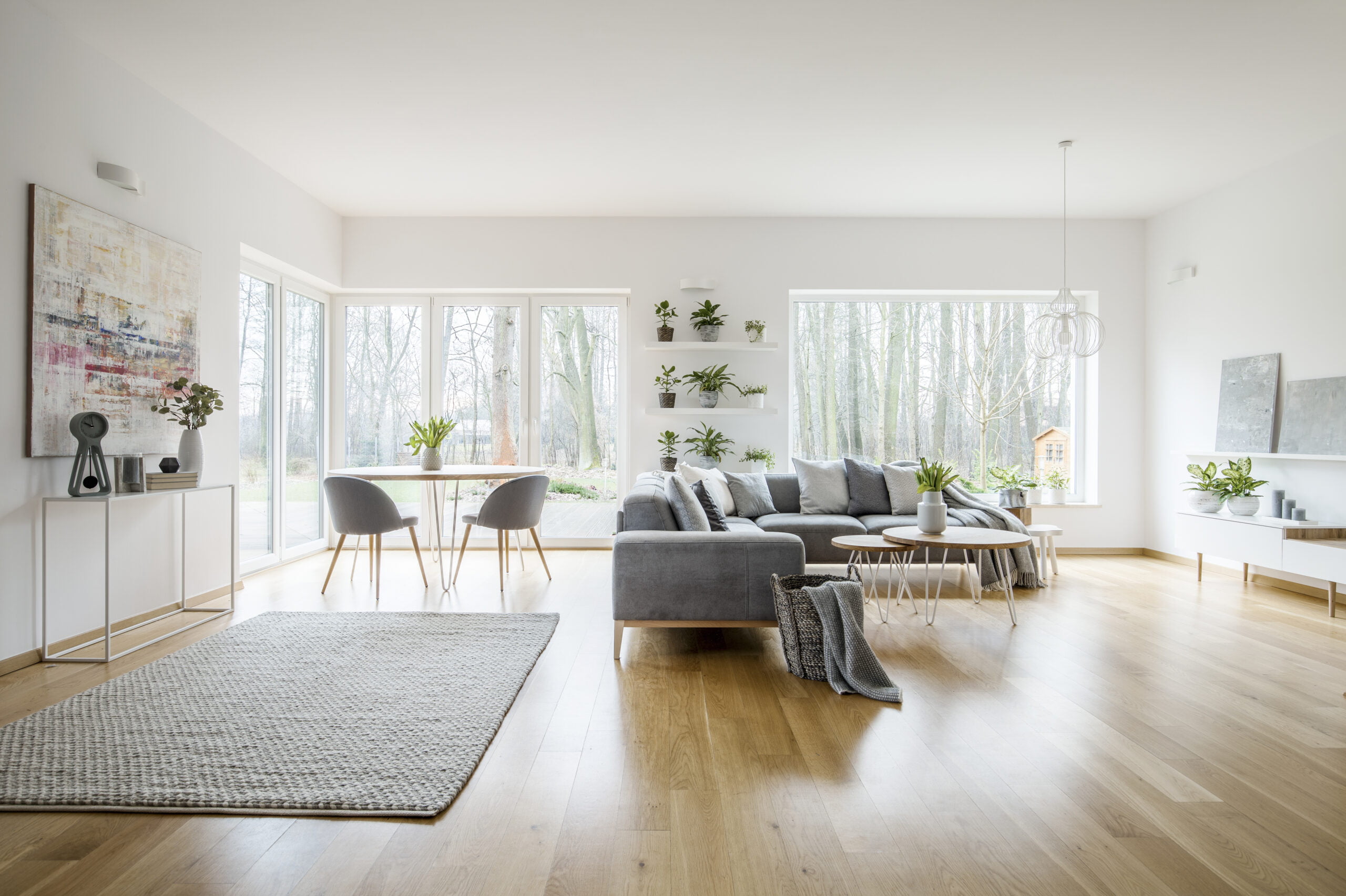Choosing the right flooring for your home is a crucial decision that impacts its aesthetics, functionality, and value. At DECO Flooring in Austin, TX, we understand the importance of making an informed choice between solid hardwood and engineered hardwood floors. Both types have their unique advantages and drawbacks, and the best option depends on your specific needs, preferences, and living conditions.
The Basics of Hardwood Flooring
Solid Hardwood Flooring is exactly what it sounds like: planks of solid wood, through and through. Traditional and timeless, solid hardwood is known for its durability, longevity, and the ability to be refinished multiple times over its lifespan. It’s available in various wood species, including oak, maple, and cherry, each offering unique grain patterns and colors.
Engineered Hardwood Flooring, on the other hand, consists of a thin layer of hardwood affixed to layers of plywood or another wood-based material. This construction method makes engineered hardwood less susceptible to changes in humidity and temperature, allowing for installation in more areas of the home, including basements.
Considerations for Choosing Between Solid and Engineered Hardwood
1. Moisture and Temperature Fluctuations
If you live in an area with high humidity levels or significant temperature swings, engineered hardwood might be the better option. Its cross-layered construction provides stability and reduces the risk of warping or buckling. Solid hardwood is best suited for more controlled environments where the moisture and temperature levels remain relatively stable.
2. Durability and Longevity
Solid hardwood is renowned for its durability. With proper care, it can last for generations and can be sanded down and refinished multiple times, allowing you to refresh its appearance. Engineered hardwood, while still durable, generally allows for fewer refinishing sessions due to its thinner top layer of hardwood.
3. Installation Flexibility
Engineered hardwood offers more flexibility in installation methods. It can be glued, nailed, or even floated, depending on the product. This makes it suitable for installation over concrete or radiant heating systems. Solid hardwood typically requires a more traditional and permanent nail-down installation method, limiting its use to certain subfloors.
4. Cost Comparison
Initially, engineered hardwood may be more cost-effective than solid hardwood due to its reduced amount of precious hardwood. However, considering the potential longevity and timeless appeal of solid hardwood, it may offer a better return on investment in the long term.
Making the Best Choice for Your Home
At DECO Flooring in Austin, TX, we believe the choice between solid and engineered hardwood should be guided by your lifestyle, budget, and the specific conditions of your home. For those seeking the utmost in tradition and longevity, solid hardwood is unparalleled. For homes requiring more flexibility in installation and resistance to moisture, engineered hardwood stands out.
In conclusion, both solid and engineered hardwood floors offer distinct advantages. Your choice will depend on your priorities, whether it’s the classic charm and longevity of solid hardwood or the versatility and moisture resistance of engineered hardwood. At DECO Flooring, we’re committed to helping you navigate these choices, ensuring that you select the perfect flooring to meet your needs and enhance the beauty of your home for years to come.












